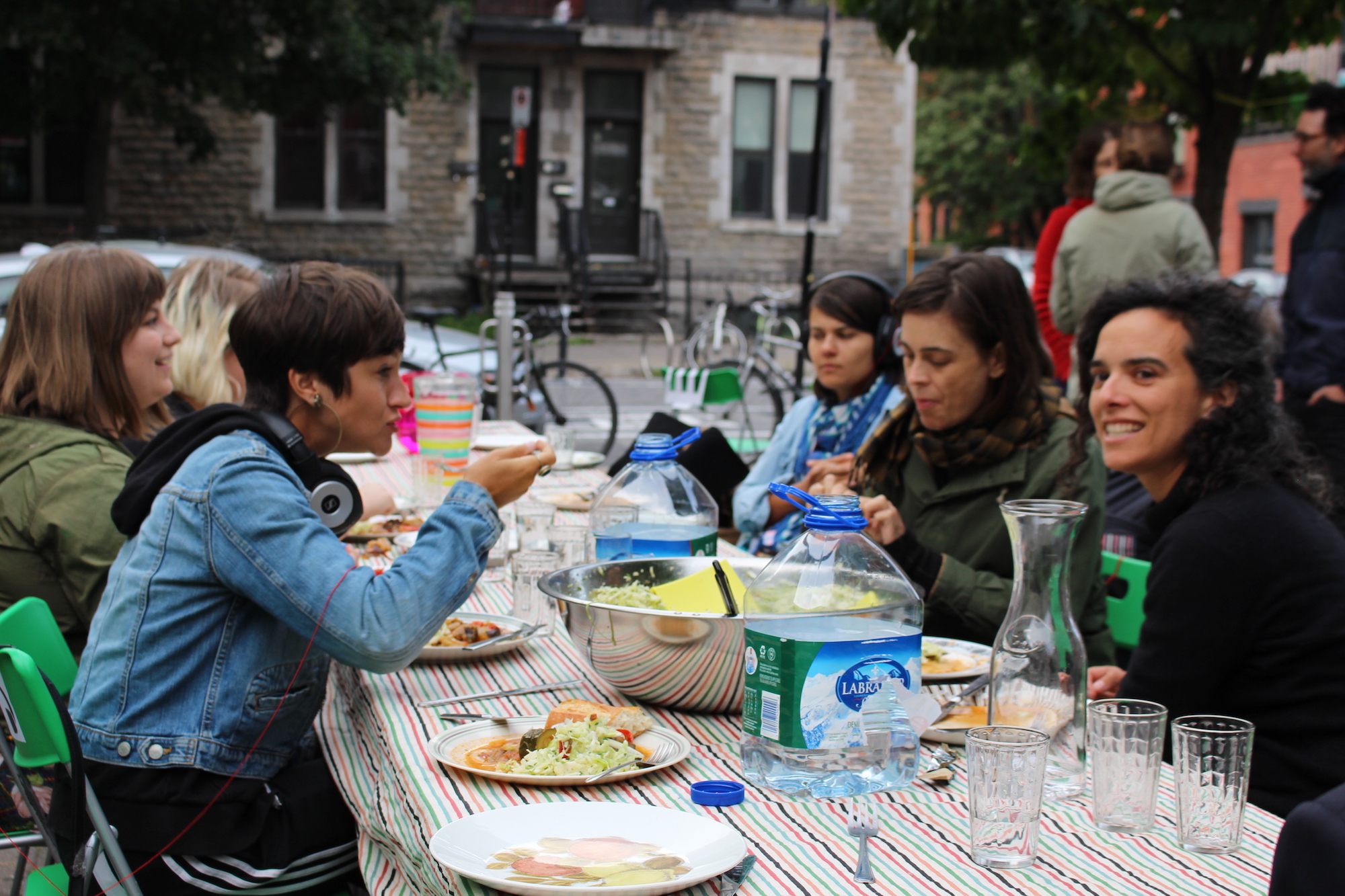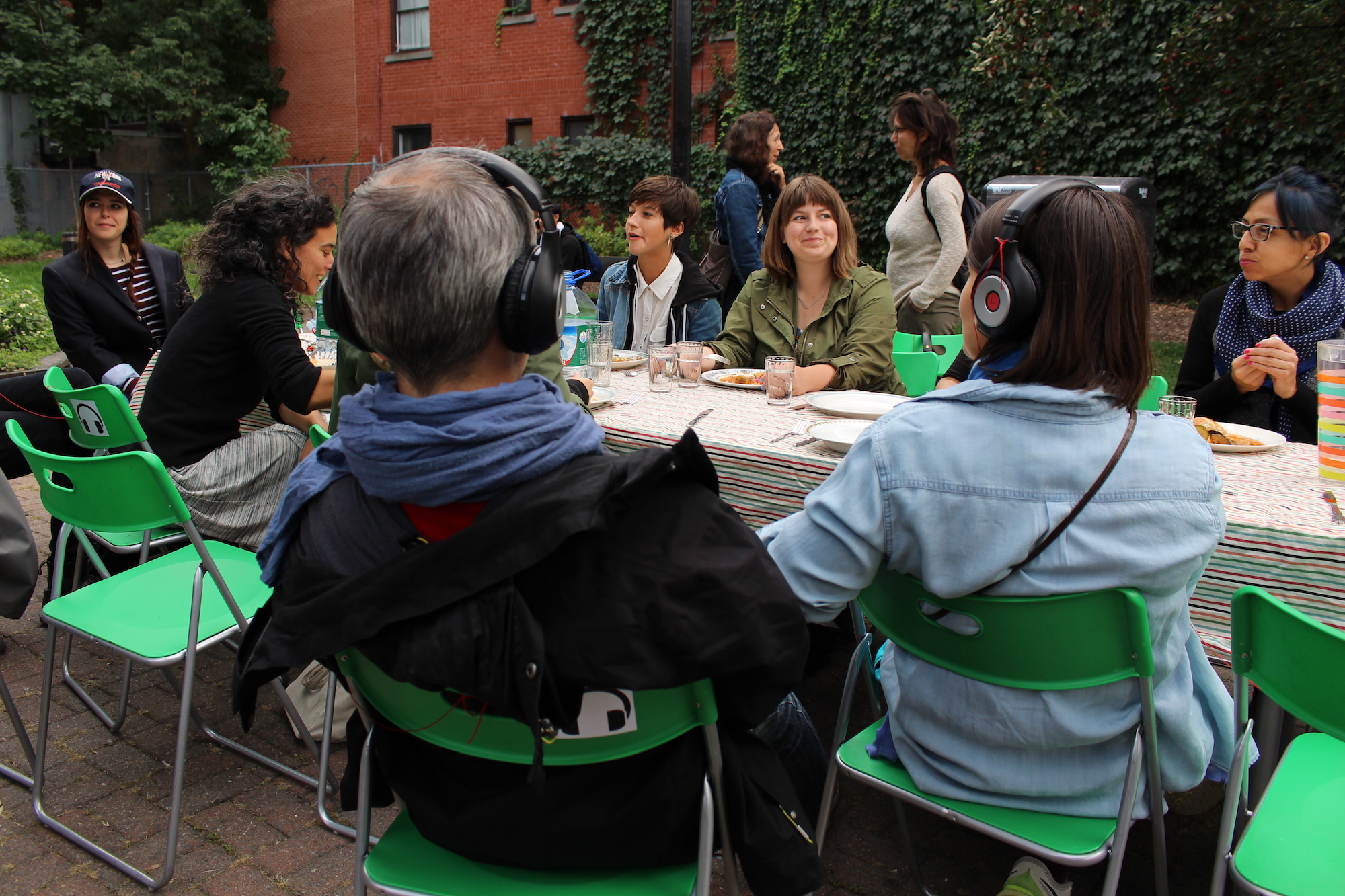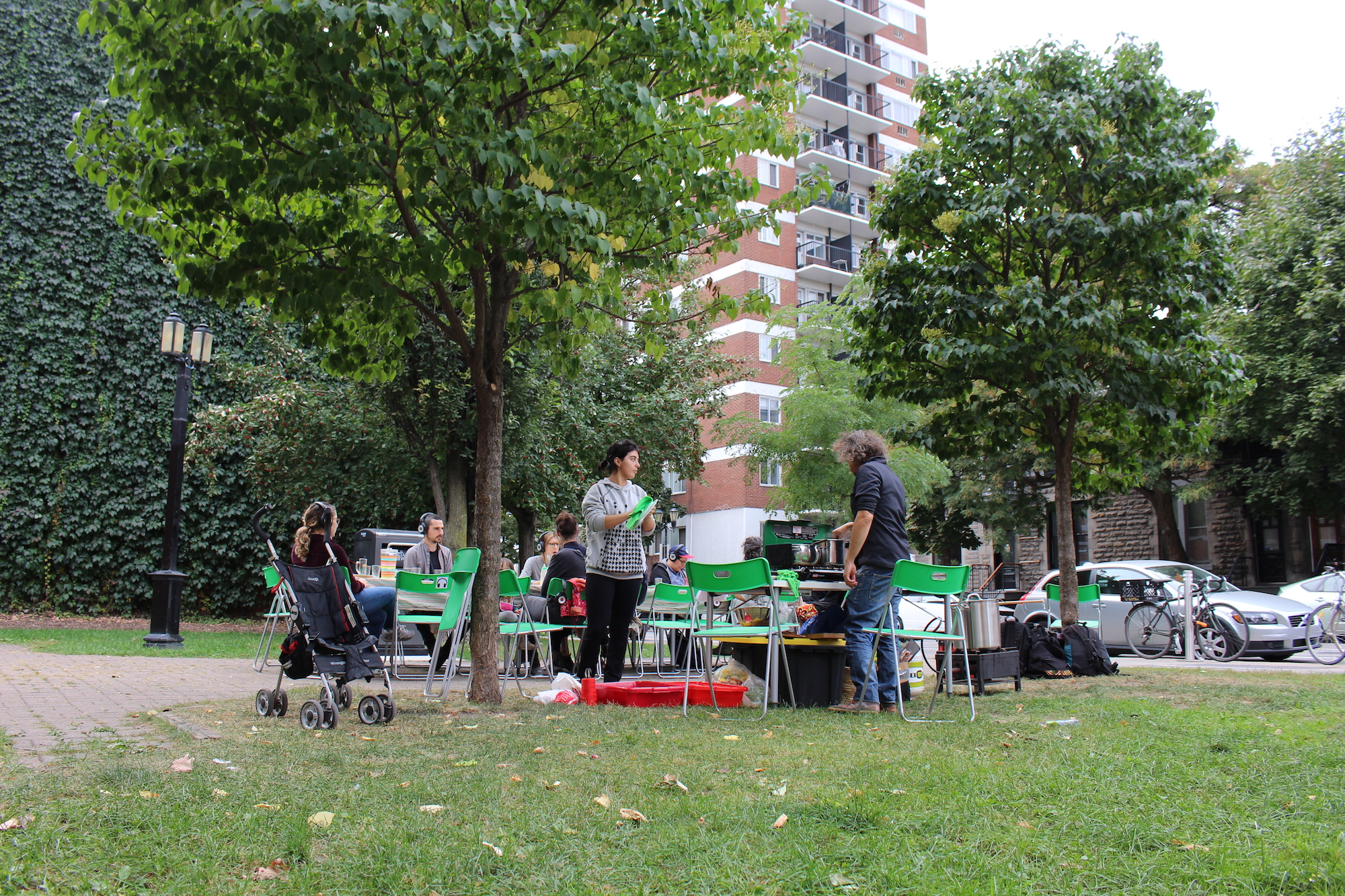STAY-AT-HOME ACTIVITIES | INTIMATE ECOLOGY #4
Julie Faubert’s project (in collaboration with Aude Maltais Landry and Suzanne Beth) La Table was “a sound intervention occupation [seeking] to revisit and transform our reading and our experience of public squares.” Questions prompted by the project continue to be relevant: “How do we inhabit the spaces we have in common? How do we build the collective history of our cities? Who decides our street names? What is collective memory? How can we participate in creating new senses of belonging to common spaces?”
1.
In what spaces do you feel you belong, and why? In what ways do class discrimination and prejudice inform how we relate to intimacy and proximity?
2.
Think of public spaces in the city. What do you use them for? What are some ways in which they could better serve your needs and the needs of all those who inhabit them? As persistent racism in public space intensifies during the pandemic, can we imagine a safe city? Can we imagine a collectively constructed public space that prioritizes the well-being of the bodies that inhabit it rather than the maintenance of the space itself?
3.
In 2019, the city of Montreal changed the name of Rue Amherst to its current name, Rue Atateken. What are the limits and potentials of (re)naming for establishing new relationships to the past and future? Could a decolonial city exist here?
4.
Recall a recent dinner you shared around a table. At another table, in the future, how might we tell the story (the future collective histories) of this pandemic as it unfolded in our city? What kind of stories do you hope we will be able to tell?
More from our files!
Take a look at this photo gallery and video to see how La Table participants questioned our experience of collective memory in public spaces.





